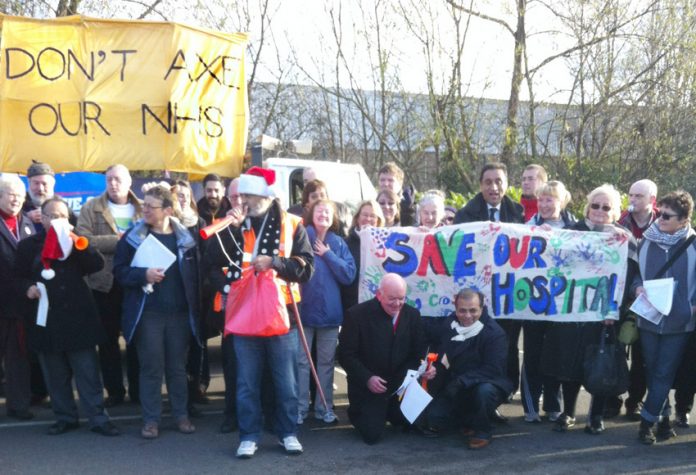
OVER 1,000 doctors involved in the care of people with lung disease have written to the new NHS Commissioning Board in England, expressing ‘grave concern’ about the future of NHS care for their patients.
The letter was composed at the British Thoracic Society Winter Conference in London last Friday.
It says that NHS staff are ‘disappointed and angry’ that efforts to improve care for people with lung disease and asthma might ‘be left behind in the new NHS’.
As part of Health and Social Care Act changes to the NHS in England, ten regional board networks of doctors and nurses who organise care for lung diseases at a regional level are being restructured and will no longer have support or funding after next April.
The medical experts say treatment has been transformed in recent years, leading to better organisation of services such as oxygen delivery for patients who need it at home.
Their letter says: ‘The respiratory improvement programme started by the Department of Health just two years ago is starting to make real progress in improving respiratory care, whilst also saving the NHS money.
‘Yet the support and funding for all this work is being withdrawn from April 2013, just at the point when patients are about to really benefit.
‘We are concerned that patients living with respiratory disease will be left behind in the new NHS.’
One of the signatories, Prof Mike Morgan, who works in Leicester, said: ‘We’re very disappointed that this apparatus is being dismantled.
‘We’ve worked hard alongside patients to improve standards of care, and it’s heartbreaking to see this work destroyed unnecessarily.’
British Lung Foundation (BLF) chief executive, Dr Penny Woods, said: ‘Our patients are writing to MPs to express their concerns. We’re worried that if these networks aren’t continued, the variation in standards of care will get worse.’
Asthma UK chief executive Neil Churchill warned: ‘The loss of networks and a coherent improvement programme will make it harder to reduce deaths and improve efficiency for respiratory diseases.’
Meanwhile, five-year-old Rosie Davies, from Walsall, has had pioneering surgery at Birmingham NHS Children’s Hospital to repair a large gap in her spine using bone taken from her legs.
Rosie was born with a very rare disorder called spinal segmental dysgenesis, which left a 10cm gap in her backbone. This meant her upper body weight was unsupported and her inner organs were being crushed which would have eventually killed her.
In a 13-hour operation, Rosie’s legs were amputated from the knee down and a section of bone was taken to bridge the gap in her spine. Two metal rods were then bolted to the upper spine and the hips to provide extra support.
Since the surgery there have been early signs of sensation returning to her legs, which means it may be possible for Rosie to walk one day with prosthetic legs.
An operation of this scale has never been attempted in Europe before. The only similar procedure took place ten years ago in New Zealand.